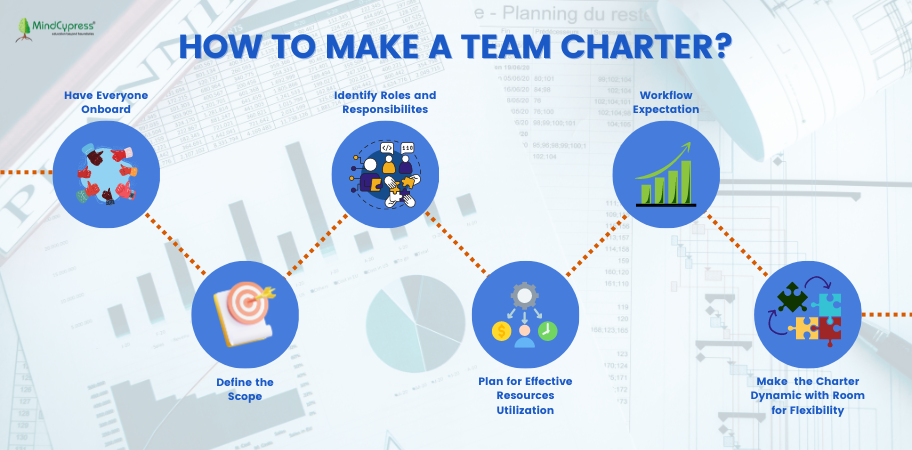Team Charter in Project Management: Key Role, Concepts and Considerations
Effective teamwork is essential for achieving success in project management. However, without clear expectations, roles, and responsibilities, team dynamics can become chaotic, leading to confusion, delays, and ultimately project failure. This is where the team charter comes into play. A team charter is a foundational document outlining the purpose, objectives, roles, responsibilities, and guidelines for a project team. In this blog, we'll understand the critical role of the team charter in project management. We will also highlight key concepts and considerations for creating and utilizing this important tool effectively.

Key Concepts of the Team Charter
Defining Purpose and Objectives:
The team charter begins by clearly articulating the purpose and objectives of the project. This section outlines the project's goals, deliverables, and expected outcomes, providing a shared understanding of what the team is striving to achieve.
Clarifying Roles and Responsibilities:
One of the primary functions of the team charter is to define the roles and responsibilities of each team member. This includes identifying project leads, team members, stakeholders, and other key individuals involved in the project. Clarifying roles helps prevent confusion and ensures that everyone knows what is expected of them.
Establishing Ground Rules and Guidelines:
The team charter sets the tone for collaboration by establishing ground rules and guidelines for team communication, decision-making, and conflict resolution. These ground rules help create a positive team environment and promote effective teamwork.
Identifying Resources and Support:
The team charter outlines the resources and support available to the project team, including budgetary constraints, access to tools and technology, and support from stakeholders or sponsors. Clear expectations regarding resources help ensure that the team has the necessary support to accomplish their goals.
Setting Communication Protocols:
Effective communication is critical for project success, and the team charter defines communication protocols, including frequency, methods, and channels of communication. This ensures that team members stay informed, engaged, and aligned throughout the project lifecycle.
Considerations for Creating a Team Charter for Project Management
Collaboration and Input:
Creating a team charter should be a collaborative process involving all members of the project team. Input from team members helps ensure buy-in and commitment to the charter's goals and objectives.
Flexibility and Adaptability:
While the team charter provides a framework for project execution, it should also allow for flexibility and adaptability. Projects are dynamic, and the charter should be able to accommodate changes, challenges, and unforeseen circumstances as they arise.
Review and Revision:
The team charter is not set in stone and should be reviewed and revised as needed throughout the project lifecycle. Regularly revisiting the charter helps ensure that it remains relevant and aligned with the project's evolving needs and objectives.
Alignment with Organizational Goals:
The team charter should be aligned with the organization's overall goals, strategies, and values. This ensures that the project contributes to the organization's success and delivers value to stakeholders.
Conclusion
In conclusion, the team charter plays a vital role in project management by providing a framework for teamwork, collaboration, and success. By defining purpose, clarifying roles, establishing ground rules, identifying resources, and setting communication protocols, the team charter helps ensure that project teams are aligned, engaged, and empowered to achieve their goals. By considering key concepts and considerations for creating a team charter, project managers can leverage this valuable tool to drive project success and deliver value to stakeholders.
If you want to start your career in Project Management with the right skills and knowledge, enroll at MindCypress. The platform offers Live Virtual Classes for Project Management Professional training that can help professionals stay ahead in their projects.
